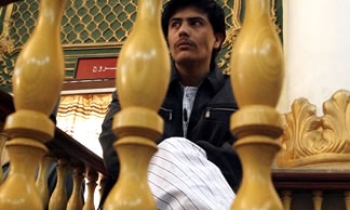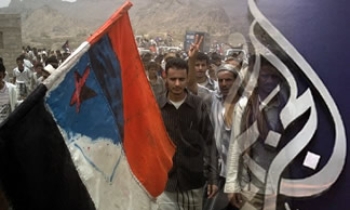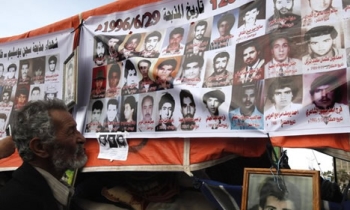Twelve countries where journalists are regularly killed and governments fail to investigate the crimes and seek out perpetrators are being highlighted in CPJ's 2010 Impunity Index. The compilation was released this week to coincide with an international summit on impunity being held in New York City where press freedom advocates and journalists are gathering to discuss strategies to end violence against the press.
In creating the index, CPJ looked at murders of journalists worldwide from 2000 to 2009. Cases are considered unsolved when no convictions have been obtained. Nations with five or more unsolved cases are included in the index, a criteria met by 12 countries this year.
At the top of the list are two countries entangled in conflict: Iraq with 88 unsolved journalists' murders over the last 10 years; and Somalia in second place because of the rein of terror insurgents have inflicted on the media. Independent Somali radio journalists are especially targeted by militants, and at increased risk because a weak federal government has failed to prosecute suspects.
In some countries, a culture of impunity has driven journalists into exile or to self-censor in order to survive. Sri Lanka ranks fourth on the index with 10 unsolved murders; many of its experienced journalists have left the country. Sri Lankan journalists have been attacked for their coverage of civil war, human rights, politics, military affairs and corruption. In Mexico, self-censorship is so common that major events have gone unreported. As well, the Mexican government's failure to rein in the brutality of drug cartels moved the country up two spots on the index.
Russia ranked eighth on the index with three journalists killed in 2009, bringing the country's 10-year total of unsolved murders to 18. Sergei Sokolov, deputy editor of the independent Moscow newspaper "Novaya Gazeta", attended the summit and said that international attention to impunity makes a difference because "the worst thing in the world is to feel isolated."
However, Colombia and Brazil made significant improvements in reducing deadly violence against journalists and bringing killers to justice. Only one Colombian journalist has been killed for work-related reasons in the last three years. And Brazil managed to take itself off the index altogether by "investigating and prosecuting the perpetrators in these crimes." Prosecutors recently won convictions against four men, including three members of the military police.
"Our goal in compiling this index is to spur leaders in these nations to action," said CPJ. "Many of these cases are solvable - the perpetrators have been identified but authorities lack the political will to prosecute."
CPJ's findings show that impunity in the media is quite strong in South Asia with Sri Lanka, Afghanistan, Nepal, Bangladesh, Pakistan and India making the list. Worldwide more than 90 per cent of victims are local reporters covering crime, corruption and national security. But in Afghanistan most of the journalists killed were international reporters. The index also reports that threats against journalists are significant indicators; four out of 10 journalists murdered received threats before they were killed.
The Philippines's impunity rating shot up from sixth to third place with the murder of 30 journalists and two media support workers in Maguindanao province last November. Authorities indicted close to 200 people in the massacre, including local political leaders. But impunity is still deeply entrenched. Two of the most prominent suspects, members of the Ampatuan clan who allegedly masterminded the murder of 57 people, including journalists, were recently removed from the multiple murder charge sheet, although they remain in custody.
Justice has been sacrificed for political patronage, says the Center for Media Freedom and Responsibility (CMFR)."President Gloria Macapagal Arroyo would rather that the public forget it, but there is no denying that the Ampatuans were, and could still be, her political allies, and that their help could be crucial in insuring the victory of the ruling coalition's candidates at both the national and local levels." CPJ has recorded 55 unsolved murders in the Philippines over the last decade.
Speaking at the summit, Melinda Quintos de Jesus, executive director of CMFR, said she hoped the massacre would provoke the public to understand that "it is a general culture that really lacks the rule of law."
Solidarity among news media and journalists is key to combating impunity, blogged Ricardo Trotti of the Inter American Press Association (IAPA) during the summit. Lack of training and professionalism and the negligence of some media outlets and journalists have made journalists and media workers more vulnerable. Journalists must unite in order to generate public awareness of the need to safeguard freedom of expression.









